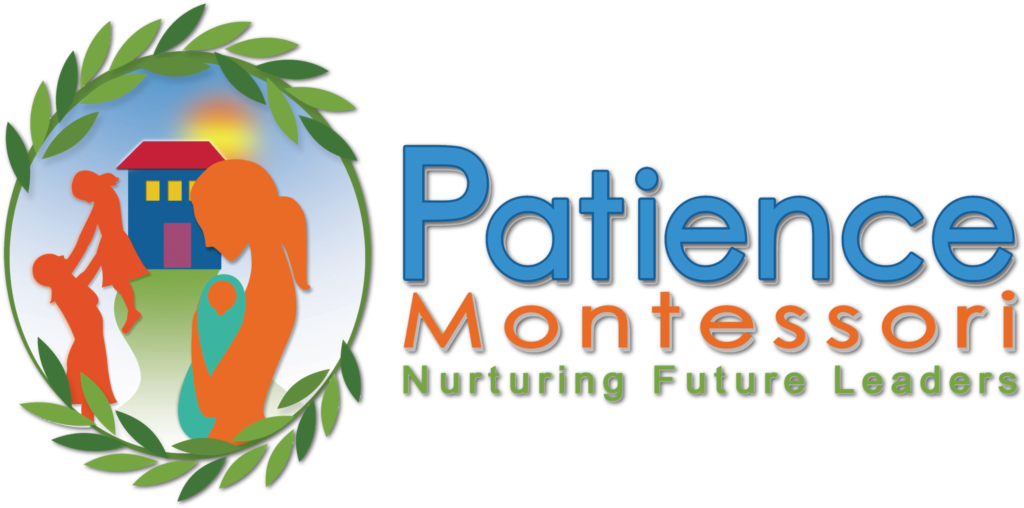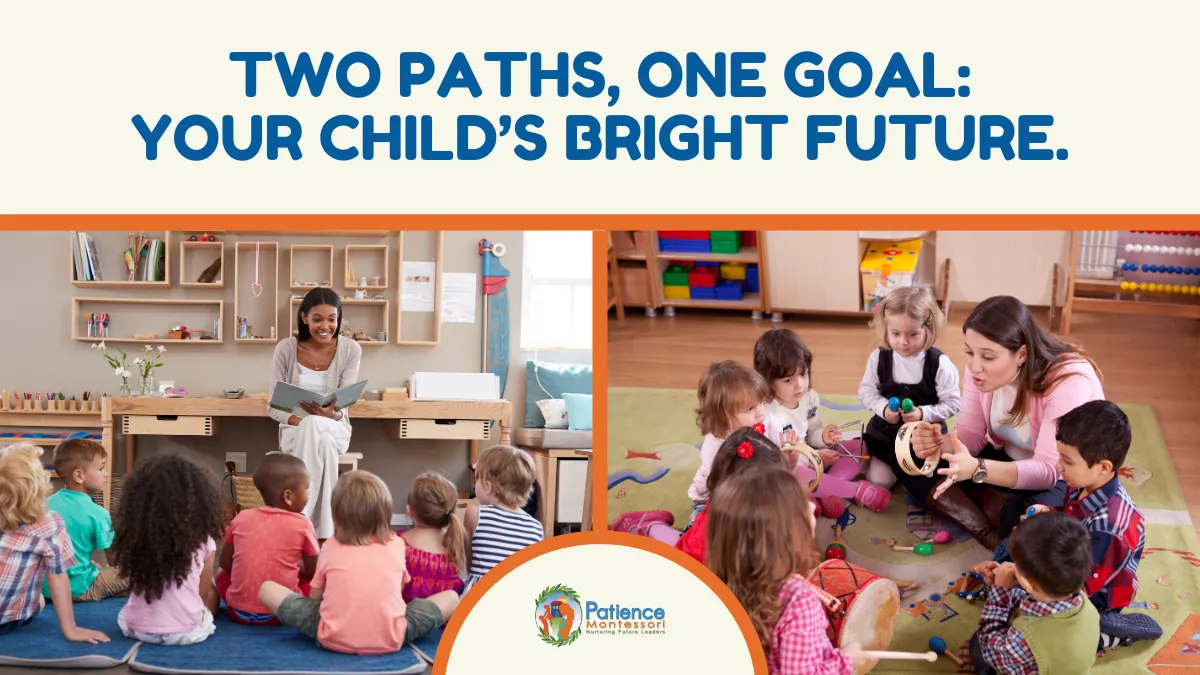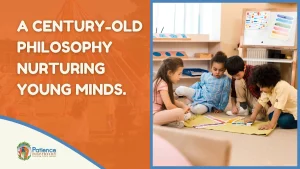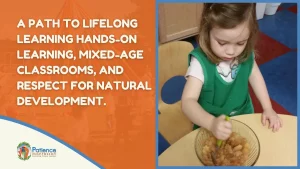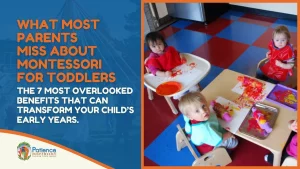Your child’s first school experience can ignite a lifelong love of learning—or leave them feeling uninspired and overlooked. As a parent in Boulder, you want to ensure those early years build a foundation for confidence, curiosity, and growth. But with so many choices, how do you decide which path gives your child the best start?
Montessori and traditional preschools stand out as two of the most popular (and debated) approaches. While both aim to prepare children for the future, they differ in their philosophies, classroom environments, and how they nurture each child’s unique potential.
Read on to discover how these two methods compare, and gain the clarity you need to confidently choose the right beginning for your child’s educational journey.
What Is Montessori Education?
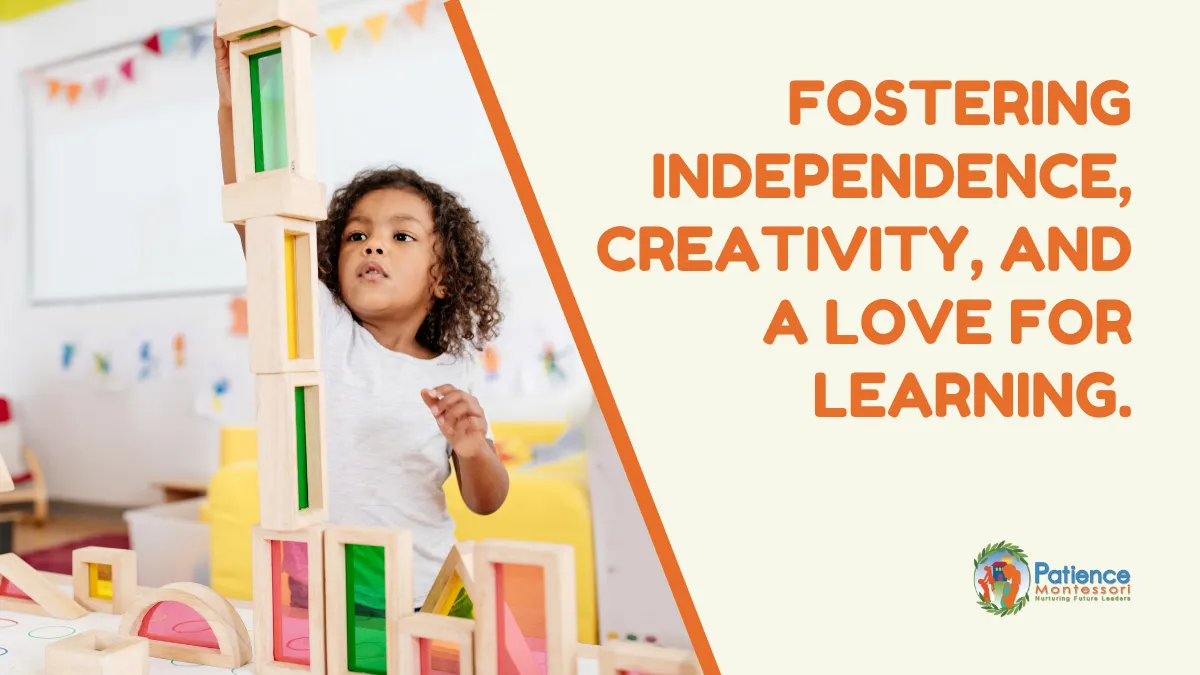
Montessori education, created by Dr. Maria Montessori over 100 years ago, takes a child-centered approach that’s all about inspiring curiosity, independence, and a love for learning. Its philosophy focuses on fostering:
- Independence
- Creativity
- Problem-solving skills
- A natural love for learning
Montessori classrooms are designed to empower kids to explore and learn at their own pace in a thoughtfully prepared environment. This approach has become a favorite around the world and is especially loved in Boulder for its focus on hands-on learning and helping each child grow in their own unique way.
Key Components of Montessori Preschools
- Hands-On Materials: Montessori classrooms use specialized materials like puzzles, beads, and tactile items to teach math, language, and sensory skills in an engaging way.
- Child-Led Learning: Teachers, often called guides, follow each child’s individual interests and help them advance through activities at their own pace.
- Mixed-Age Classrooms: Classrooms often group children in three-year age spans (e.g., 3-6 years old), encouraging peer learning and mentorship.
- Focus on Independence: Children learn skills like buttoning their shirts, preparing snacks, and cleaning up after themselves, promoting self-reliance.
What Is Traditional Preschool?
Traditional preschools typically follow a teacher-led approach where the day’s activities are structured and planned out in advance. These schools aim to prepare children for kindergarten, emphasizing basic skills like recognizing:
- Numbers
- Letters
- Shapes
- Colors
Key Components of Traditional Preschools
- Structured Curriculum: Activities are planned and guided by the teacher, focusing on group participation, listening skills, and following instructions.
- Same-Age Classrooms: Children are grouped by age, allowing teachers to gear lessons toward developmental milestones specific to that range.
- Routine and Predictability: Traditional preschools have structured schedules with specific times for circle time, story time, and playtime.
- Social Skills Development: Interaction during group activities teaches children how to share, listen, and cooperate.
Boulder Preschool Comparison: Montessori vs. Traditional – How do They Differ
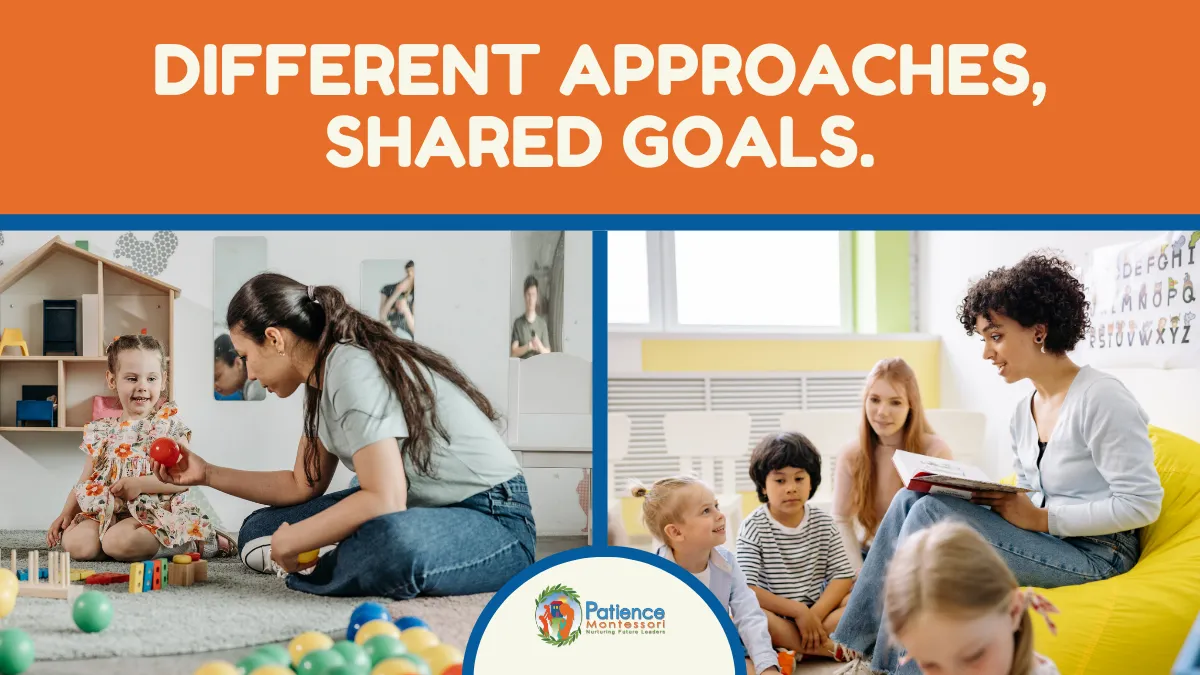
While both types aim to nurture your child and prepare them for the future, they approach this goal in very different ways.
1. Teaching Methods
Montessori schools focus on self-directed learning where children choose the activities they’re drawn to, guided by their natural interests. For instance, a child might spend the day learning math concepts through hands-on puzzles instead of sitting down for a teacher-led math lesson.
Traditional preschools rely more on teacher instruction. The teacher leads the class in activities such as reading stories, practicing numbers, or singing songs. Each activity is designed to keep all children on the same track.
2. The Role of the Teacher
Montessori teachers act more as facilitators or guides. Instead of directly instructing, they observe and provide subtle support. This approach encourages children to solve problems independently.
By contrast, traditional teachers serve as instructors, actively leading the class through lessons and group activities. They are more involved in directing the children’s attention to specific tasks.
3. Classroom Environment
A Montessori classroom is carefully designed to feel calm, inviting, and organized. Each material has a designated space, and children are taught to put things back when they’re done using them. There is more freedom of movement in the classroom, and children are encouraged to choose where and how they work—be it at a desk, on the floor, or in a cozy corner.
Traditional preschools typically have structured layouts with assigned group seating and areas for specific activities. The classroom might be decorated with brightly colored posters, charts, and artwork to create a lively atmosphere.
4. Child Development Outcomes
Montessori education fosters strong independence, critical thinking, and intrinsic motivation. For example, many Montessori students learn to read, write, and perform basic math earlier because they feel a sense of ownership over their learning.
Traditional preschools often develop social cohesion and teamwork, as children participate in many group-oriented activities. This method helps cultivate a sense of community while equipping students for traditional kindergarten environments, where collaboration and teamwork are key.
Montessori Education Benefits in Boulder, CO
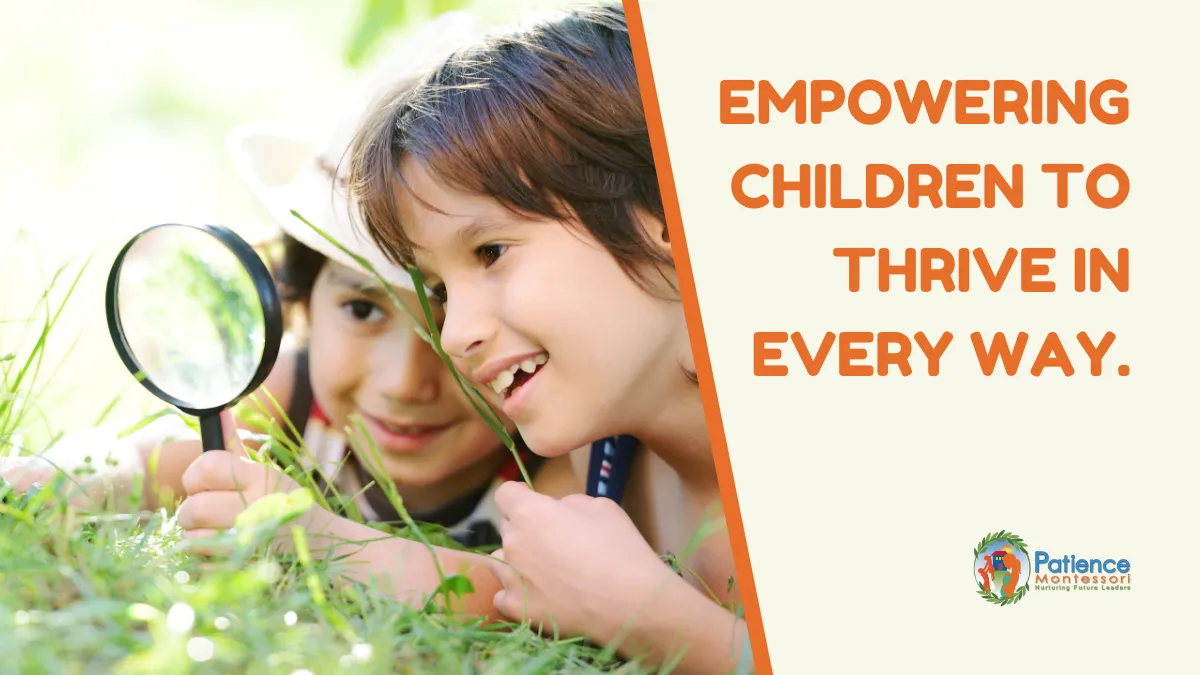
- Building Independence with Confidence: Montessori’s emphasis on self-directed learning empowers children to become independent and confident from an early age. For parents, this means raising self-reliant, capable individuals prepared to navigate the world with ease.
- Inspiring Creativity and Curiosity: Through hands-on exploration and problem-solving, the Montessori approach inspires creativity and cultivates a lifelong love of learning—essential traits in today’s ever-changing world.
- A Deep Connection to Nature: In a community like Boulder, where the outdoors is deeply valued, Montessori’s use of natural materials and focus on outdoor activities align perfectly with your family’s lifestyle. It instills a sense of wonder and respect for the environment.
- A Learning Journey Tailored to Your Child: Montessori classrooms are designed to adapt to each child’s unique pace and interests, providing a supportive and engaging environment that nurtures both academic and emotional growth.
Benefits of Traditional Preschools in Boulder
Traditional preschools are also a solid choice for many families in Boulder, offering their own set of benefits.
- Routine and Predictability: For younger children who thrive on structure, the routine of traditional preschools can provide a sense of security and stability.
- Kindergarten Preparation: These schools are designed to teach the basic academic and social skills children need to succeed in more traditional school settings.
- Social Skills: Group activities encourage collaboration and social interaction, which are important as children transition to elementary school.
- Affordability: Traditional preschools often come with more affordable tuition rates compared to Montessori schools, which can be a factor for families on a budget.
Choosing a Preschool in Boulder: How to Decide What’s Best for Your Child
Montessori and traditional preschools each offer unique benefits, and the best option depends on your child’s personality, learning preferences, and your family’s priorities.
Here’s how to make the right choice:
1. Consider Your Child
- Is your child naturally independent and curious? They may thrive in a Montessori environment.
- Do they prefer structured activities and clear instructions? A traditional preschool could be a better fit.
2. Visit Local Schools
Set up tours at schools in Boulder. Many, like Patience Montessori, offer personalized walkthroughs of their facilities. This gives you a firsthand look at the classrooms, materials, and overall atmosphere.
3. Talk to Parents
Join preschool parenting groups or connect with other parents in your Boulder community. Their experiences can provide valuable insights and practical advice on what has worked for their children.
- Think About Cost and Logistics
Montessori schools can, at times, be more expensive than traditional preschools. Consider your budget and whether the school’s location fits into your daily commute.
5. Look to the Future
Think about your long-term goals for your child. Montessori might be the right choice if you value fostering independence, creativity, and problem-solving. Traditional preschools may have the edge if you want your child to transition seamlessly into a structured kindergarten.
Why Montessori is the Best Choice for Modern Families
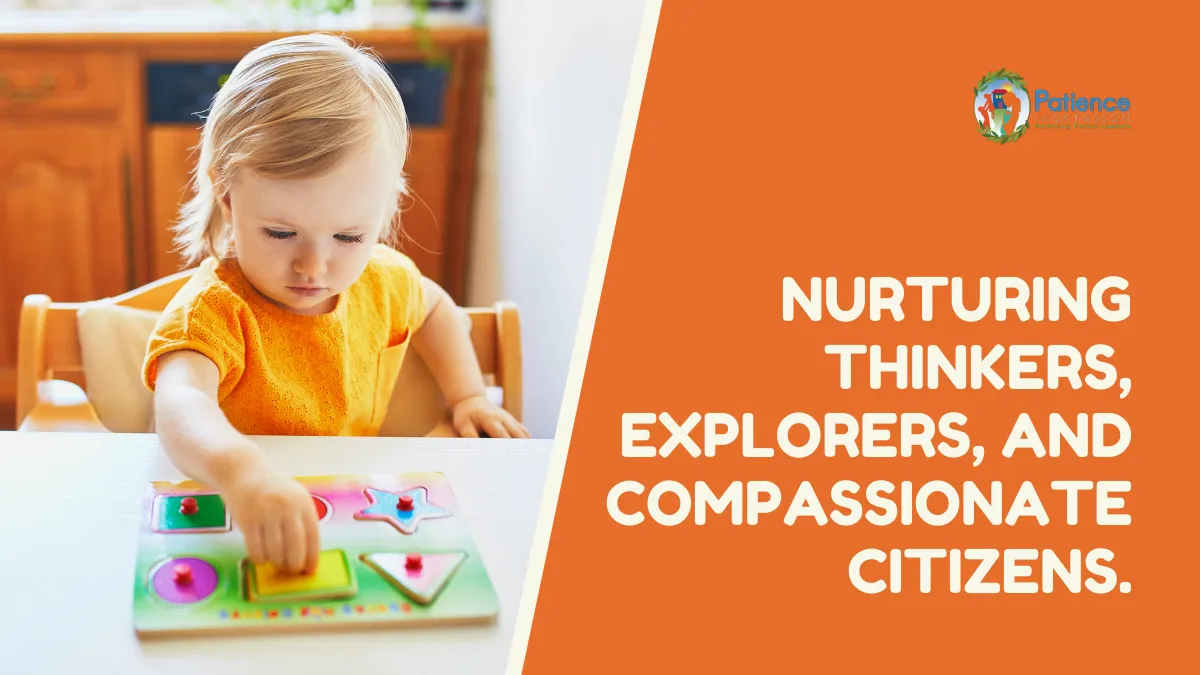
Montessori education is more than just an academic approach—it’s a powerful foundation for lifelong growth and success. Unlike traditional methods, Montessori schools ignite a child’s natural curiosity, champion independence, and encourage hands-on problem-solving, all essential skills in today’s ever-changing world.
Within Montessori classrooms, children progress at their own pace, building real confidence and developing ownership of their learning journey. The mixed-age environment naturally fosters collaboration, empathy, and social development, while caring, knowledgeable teachers support each child in academics and life skills alike.
The impact of Montessori reaches far beyond the classroom. Many trailblazers—like the founders of Google (Larry Page and Sergey Brin), Amazon (Jeff Bezos), and Wikipedia (Jimmy Wales)—attribute their creativity, critical thinking, and innovative drive to their Montessori roots. Other icons, from Nobel Prize winners to renowned entrepreneurs and artists, share similar stories. See notable Montessori alumni here.
Montessori does more than teach facts—it cultivates engaged thinkers, curious explorers, and compassionate citizens equipped to thrive in any environment. When you choose Montessori, you’re investing in an education that shapes leaders and innovators for tomorrow.
Unlock Your Child’s Full Potential at Patience Montessori
Choosing the right preschool is one of the most important decisions you’ll make for your child’s future. At Patience Montessori, we don’t just provide education—we create an environment where your kid will thrive academically, socially, and emotionally.
From infants to kindergarteners, every child is encouraged to explore their unique potential through hands-on activities, personalized learning plans, and a curriculum that fosters critical thinking and problem-solving skills.
What truly sets Patience Montessori apart is our unwavering commitment to excellence:
- Exceptional Teachers: Our experienced and compassionate educators are the heart of our school. They guide each child with patience and care, ensuring they are supported and valued every step of the way.
- A Natural Learning Environment: Our classrooms are thoughtfully prepared with Montessori materials that inspire curiosity and engagement. Outside, children enjoy a secure, nature-filled play area that encourages exploration and connection with the world around them.
- A Proven Philosophy: Montessori education has shaped some of the greatest minds of our time. At Patience Montessori, we carry forward this legacy, equipping your child with the skills and confidence to succeed in an ever-changing world.
Parents who choose Patience Montessori consistently share glowing testimonials about their experience. One parent remarked, “The teachers are absolutely wonderful—they truly make the experience.” Another shared, “Our daughter has grown out of her shy, quiet demeanor into a social, confident personality.”
By enrolling your child at Patience Montessori, you’re giving them more than just an education—you’re giving them a foundation for a lifetime of success. Don’t wait to see the difference Montessori can make. Schedule a tour today and take the first step toward unlocking your child’s full potential.
